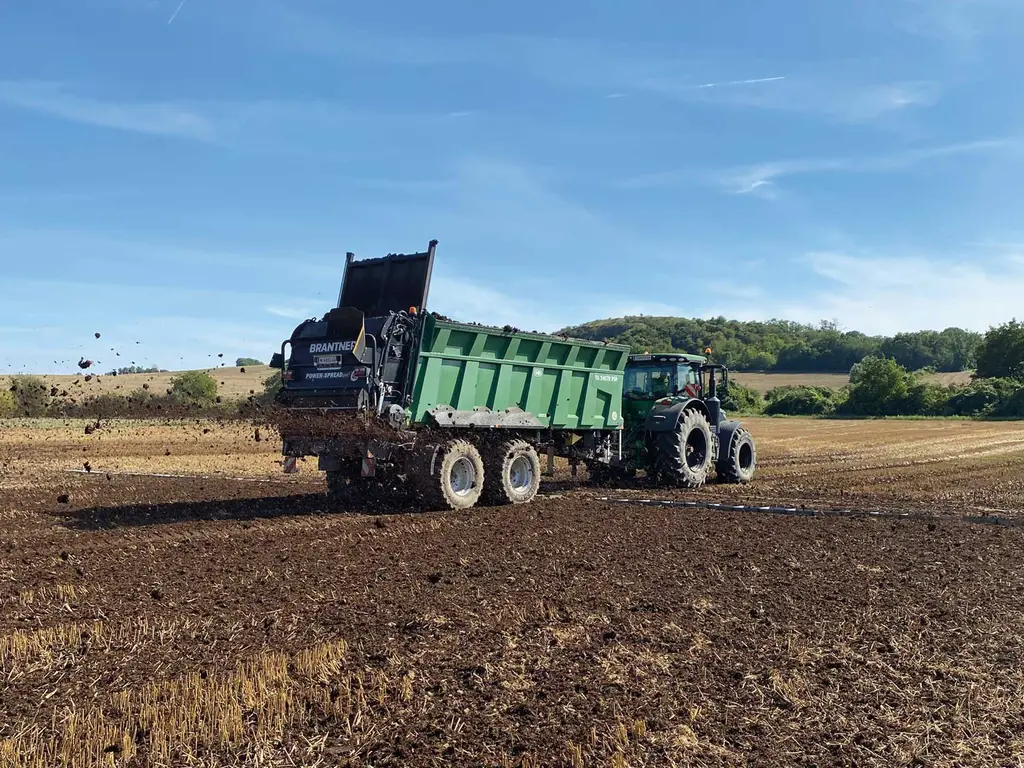After Brexit, the United Kingdom set the goal of aligning agricultural subsidies entirely with the principle of "public money for public goods." Direct payments following the EU model are largely expected to soon be a thing of the past; instead, funds will be directed exclusively toward agri-environmental services. How farmers are experiencing this paradigm shift in practice was the topic of the forum "The English Model – what experiences are EU leavers having with the business model of environmental and nature conservation services?" held at the DLG Entrepreneur Days on September 11 in Oldenburg, Germany. Farmer Tom Martin from near Cambridgeshire was there to share his experiences.
Since Brexit, the UK's departure from the EU, the country has embarked on new paths in agricultural policy, particularly affecting the agricultural subsidy model. . The UK plans to phase out area-based direct payments under the EU's Common Agricultural Policy (CAP) by 2028, replacing them with payments for environmental protection and sustainability services provided by farms. This process is already underway in the UK's four countries, although approaches vary: while England is firmly committed to replacing direct payments with environmental payments, there are still uncertainties in Northern Ireland, Scotland, and Wales.
More Than 100 Individual Measures
In England, the largest agricultural sector in the UK, the Environmental Land Management Schemes (ELM) have replaced the Common Agricultural Policy (CAP). These ELM schemes, designed to promote sustainable land management, include the Sustainable Farming Incentive (SFI). The SFI offers farmers more than 100 individual measures they can select to suit their farms. These include growing legumes, integrated pest management practices, and grassland management with reduced fertilizer use. Farmers receive payments tailored to the specific measures they implement, along with a management fee for participating in the SFI.
Easier for Consumers to Understand
But how are farmers experiencing this "English model" in their daily work? Farmer Tom Martin shared his insights at the DLG Entrepreneur Days 2024. Tom Martin, also known as the agricultural influencer "Farmer Tom," farms 400 hectares near Cambridge, growing wheat, barley, canola, beans, and buckwheat, and also raises sheep. He believes the new post-Brexit agricultural policy approach in the UK, under the slogan "public money for public goods," to be fundamentally effective.
Advisory Visits Instead of Inspections
Martin argues that it is easier for consumers to understand that "farmers are being compensated for providing environmental services to society, rather than simply receiving money based on the amount of agricultural land they own, as was the case with the CAP direct payments." Moreover, the new system aims to be simpler to implement than the CAP. Although ELM and SFI are "very complex," Martin notes that the new system is ultimately more flexible and easier to manage. This is partly because SFI measures, with terms of mostly three years, are shorter than many agri-environmental programs under CAP. Additionally, the implementation of these measures is ensured not through "inspections" and "checks" with potential "fines," but through "advisory visits," which represent a more supportive approach.
While the transition to environmental measures has not been immediate for all English farmers, Martin observes that there has been a noticeable increase in practices such as companion cropping, direct drilling, and the reduction of insecticide use due to the incentives provided by the SFI. He believes this is gradually driving a "gentle paradigm shift" towards more sustainable farming.
Direct Drilling, Carbon Savings, and Water Reservoirs
Martin himself implements several sustainable practices on his farm: his operations focus on reducing carbon emissions, and he sells the resulting carbon credits. Additionally, Martin is exploring practices for developing water reservoirs and providing polder areas to offer overflow areas for waterways in response to climate change and increasing heavy rainfall events. His farm is also committed to soil conservation, relying on direct drilling methods.
"In Germany, there is currently much discussion about reorienting the agricultural policy system. Simplifying administrative processes and the control system, as well as a more sustainable focus on agri-environmental policy, are central to this," says Erik Guttulsrød, Deputy Managing Director of the DLG Competence Center for Agriculture and Head of Economics and Farm Management at the DLG.













